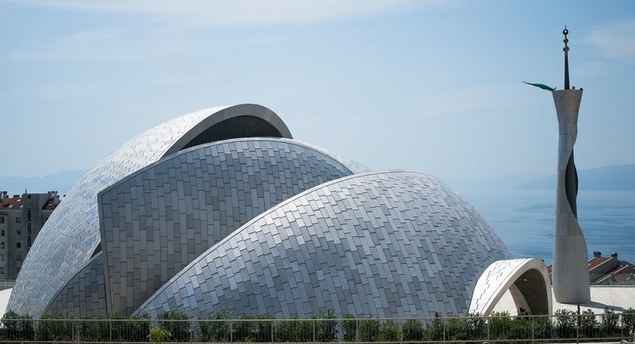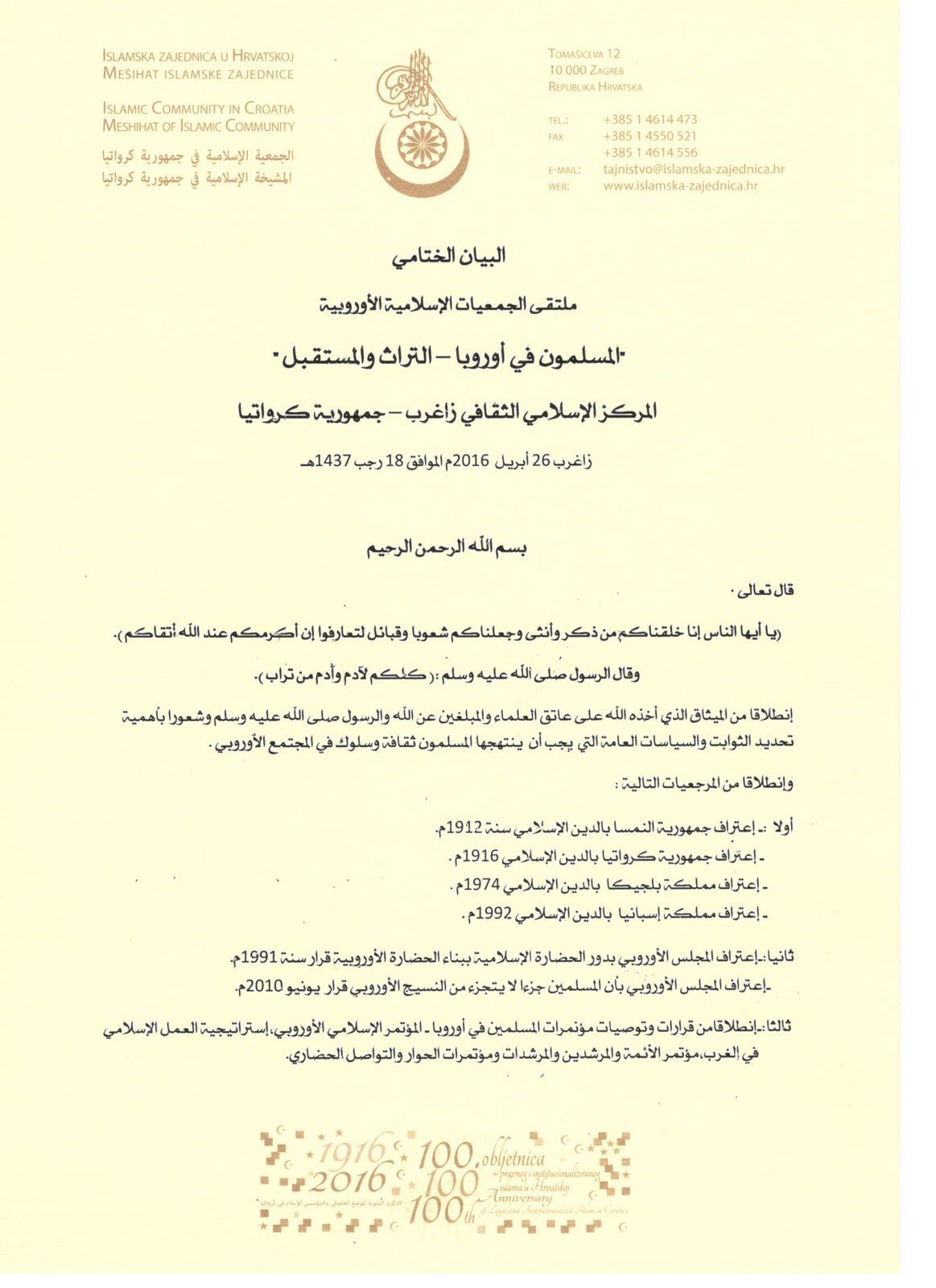Latest NewsMuslims of Croatia celebrated the 100 years of Recognizing Islam in Croatia

Muslims of Croatia celebrated the 100 years of Recognizing Islam in Croatia, among the esteemed guests included President of Turkey, Recep Tayyip Erdogan who highlighted the need for dialogue and tolerance during his visit to the Croatian capital Zagreb. President Erdogan spoke at length on the importance of unity and solidarity.
"I hope that Muslims would continue to be in the region for centuries, and live in peace and harmony. I can see that today Muslims in Croatia feel free to practice their religion."
"There is no doubt that the same case applies to other religions and cultures. I believe that it has contributed to a strong cooperation between the Croatian government and the Islamic community in Croatia.." he said.

Croatian President Kolinda Grabar Kitarovic said Muslims were an integral part of Croatian society and culture. Starting her address with the Muslim words of greeting "Assalamu alaikum", which means peace be upon you, Kitarovic said: "This legal-political act [100 years ago] was an important statement of recognition of equality of Islam, which now has an indispensable component in Croatian history and culture. Therefore, this significant day has great importance for the Croatian state as well as for Muslims in Croatia."
On April 27, 1916, the Croatian-Slovenian province of the then Austro-Hungarian Empire held a parliamentary session in which Islam was recognized as equal to Roman Catholicism and Orthodoxy.
Islam was introduced to the region by the Ottoman Empire in the 15th century. Roman Catholics represent 86 percent of the country's population, followed by Orthodox Christians at 4.4 percent and Muslims at 1.5 percent, i.e. about 63,000 people. Croatia declared its independence during the breakup of Yugoslavia in 1991 and was internationally recognized in January 1992. Since 2013, Croatia has been a member of the European Union.
The conference was attended by religious leaders, muftis, and Islamic scholars from Bosnia-Herzegovina, Macedonia, Albania, Montenegro, France, Germany, Belgium, Ukraine, Kazakhstan, Hungary, Russia, Norway, Britain, and various Arab countries.

Book Your Nikah With Us!
Click here for all your marriage services. We now offer the larger halls and restaurant bookings to cater for your big day.
MORE INFORMATION >> >>
The Islamic Cultural Centre has established the Commission to guide Muslims in the UK.
Matters relating to religious issues aswell as solving complex inheritance (Mirath) cases, marriage, divorce and islamic arbitration.
MORE INFORMATION >> >>
As we adjust to life in lockdown, many vulnerable in our community need help to get essential supplies. Our staff and volunteers are delivering every day, may Allah reward them and keep them safe.
Please help us to buy the food needed, we'll do our very best to reach as many people as possible, insha-Allah.

